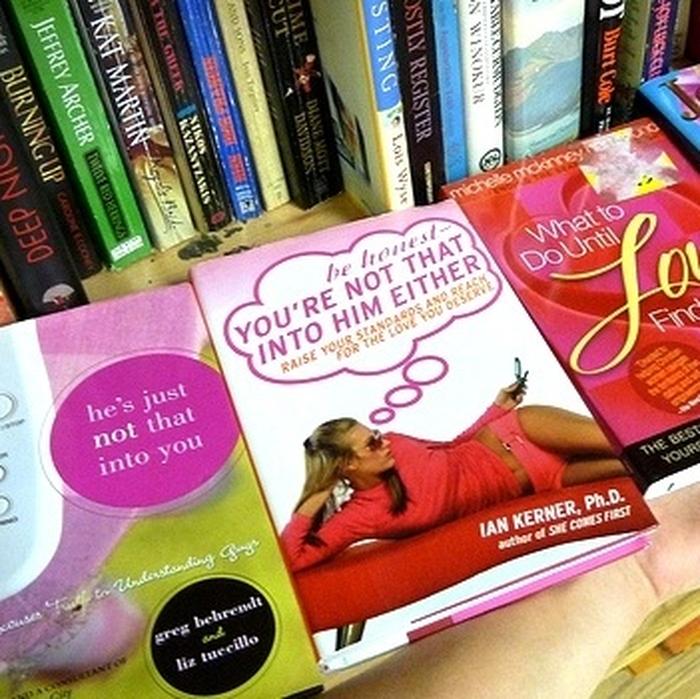
Taking a skills survey for work recently, I came to one question that gave me pause. I was to rank how this statement fit me, on a scale from 1 to 10: “I am constantly reading self-help books, learning from high achievers, and working at increasing my professionalism and appearance.”
I immediately felt exhausted. Maybe it was the imperative that word “constant” conveyed to my overachiever mind. On a scale like that, 10 is always better than 1, right? Which would make “as constantly as possible” the “correct” response.
Don’t get me wrong—of course I’m committed to personal and professional development, and I have big aspirations for my life. But I know I’m not the only woman who feels overextended. Between our jobs and commutes and trying to achieve that elusive “work-life balance” by squeezing in a workout and making time for friends, when do we have time to devote ourselves to every self-help book on Amazon’s best-seller list? Besides, is “constantly” subjecting ourselves to the scrutiny and self-help trends we find in those books really even the way to a better career and life?
Steve Salerno, author of Sham: How the Self-Help Movement Made America Helpless, says no. (“Sham,” interestingly enough, stands for the “Self-Help and Actualization Movement.”) While working as editor of the books program associated with Men’s Health, he found that “the most likely customer for a book on any given [self-help] topic was someone who had bought a similar tome within the past 18 months.” If these books really worked, you wouldn’t expect people to consistently need more advice on the same topic, now would you?
But my frustration with these “helpful” books isn’t just that they don’t work—it’s that they’re degrading to their readers. The title of a Christian Science Monitor article does a nice job summing up the way these books often make us feel: “New Popular Self-Help Books Share One Message: You’re an Idiot.” The high sales of books like Skinny Bitch and He’s Just Not That Into You, with their sharp appraisals of our personal shortcomings, supposedly reflect a demand from young female readers for “in-your-face entertainment mixed with advice.” But how good is that advice they’re giving?
Take this example: One book in this new genre, Sherry Argov’s Why Men Love Bitches: From Doormat to Dreamgirl - A Woman’s Guide to Holding Her Own in a Relationship, advises readers that the secret to a successful relationship is being “dumb like a fox” by simpering guilelessly all the while strategically manipulating her man. Is this really the smart advice women need? It’s certainly not going to build trust in a relationship—something most of us consider key to a happy partnership. Quick, game-like fixes might bring us a little instant gratification, but they’re unlikely to lead to long-term success.
What self-help books sell us is hope—the hope that we can be skinnier, prettier, more successful girlfriends, wives, employees, or just versions of ourselves. The message may be packaged in self-deprecating snarkiness or in “you go girl!” style encouragement, but the message always proves the same: “You are not all that you could be and this advice will turn your life around.”
Now I’m not saying that we should to give up on growing ourselves or our businesses, but—to get back to where I began—10 is not always better than 1. You don’t have to “constantly” read up on tricks to be happier or more successful in order to be happier or more successful.
If a book on the shelf piques your interest, by all means, check it out. But remember that perfection won’t be found in those pages, and don’t forget the power of things that can’t be packaged between two hardback covers: your friends and family, your passions, and your own self-discovery of what really makes you happy.